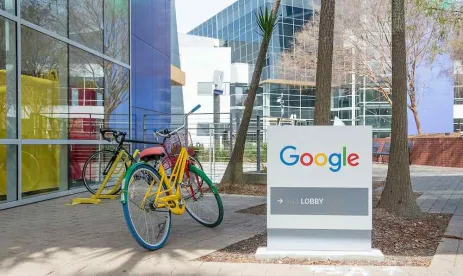What do you think about when we speak of infrastructure? Roads, bridges or even a wall? A key component to this country’s critical infrastructure is broadband connectivity, which has become even more important during the pandemic.
In the recent past, government’s role in broadband has been to hand the cable and phone oligopolies anything they wanted, at the expense of broadband consumers. Some states have gone as far as making it illegal for cities and counties to offer their own broadband systems to meet rural demand and assist the poor. 22 states currently have laws blocking or prohibiting municipal broadband to compete with Big Cable. The good news is that three states recently dropped their restrictions and are exploring options to help broadband consumers.
The Federal Communications Commission stripped away net neutrality protections for consumers in the last administration and otherwise behaved more like a cheerleader for your broadband provider than a regulator. The Justice Department even sued the state of California for trying to preserve some consumer protections against Comcast, Verizon and AT&T. Under this regime, nearly 42 million rural Americans do not have access to adequate internet connectivity to conduct business or distance learning. Microsoft believe that number is more like 160 million without broadband. ZDNet reports that due to the FCC’s rulings, “As for net neutrality, as predicted, ISP costs to users have gone up while performance remains stagnant.”
Statistics show that the US has more expensive internet fees than any European country. Yemen has cheaper access and they are in a long civil war. So the present set of industry-hyper-friendly government positions has given Americans terrible broadband service, but at least it is expensive. Can we do better?
It looks like we might be ready to try. Aside from likely reversing the current FCC position on net neutrality, the FCC is finally asking American consumers to report complaints about connectivity and broadband services. Up until now, the FCC has built its service maps and policy from data self-reported by Big Cable, with all the self-service that influencing your own regulator entails. For example, following Big Cable’s lead, the FCC currently counts an entire census block as served by broadband if only one house on the block has access. The Verge writes “Now, the FCC will finally go to the people actually using the internet to learn what’s up, though you may need to communicate clearly to be heard. The form the FCC is using for your responses is decidedly rudimentary; it looks like a general complaint form, and doesn’t ask any specific questions about broadband at all (the only reference is in the header). But the FCC says it’s a stopgap on the path to a more detailed and specific reporting tool.”
Expanding broadband is starting to become a hot button issue for state governments. “To date, at least 36 Governors have highlighted broadband infrastructure, and the technologies required for remote learning and telemedicine, as critical to closing equity gaps and for responding to both the coronavirus related pandemic and the associated economic crisis,” according to published commentary from the National Governor’s Association. While Arkansas removed its prohibition on municipal broadband offerings, Arizona, Virginia, Wisconsin and Vermont governors propose building millions of dollars into their budgets to expand rural broadband in their states, and New York, Oregon and California announced education-related broadband initiatives.
The recently passed Coronavirus relief package included $3.2 billion for expanded broadband coverage. The fund will provide $50-per-month internet subsidies for low-income households or those that have lost employment as a result of the pandemic, and $75-per-month internet subsidies for service on tribal lands. The FCC is currently seeking comment on key issues for implementation. As stated in a Bloomberg article, “The debate over whether broadband is a necessity is over. Parallels frequently drawn between the need for broadband today and the need for electricity a century ago are not misplaced. The question now is how to close the gaps by connecting rural America and bringing broadband within the means of everyone.”
The electricity roll-out metaphor is also used to support a proposed new huge infrastructure investment bill now being proposed in both houses of Congress. Senator Angus King made the comparison when he said that the broadband package in the Coronavirus relief law is “a down payment on a more significant broadband package in an infrastructure bill.” To that end, all 32 Democrats on the House Energy and Commerce Committee proposed $109 billion bill to provide broadband access and close the digital divide. $80 billion would go toward deploying new broadband networks where signals are scarce, and $15 billion would implement next generation 911 services, including systems that accept text messages, images or videos in emergencies. The same bill, called the Accessible, Affordable Internet for All Act, was proposed by Amy Klobuchar in the Senate.
We can only wait to see if the U.S. moves into the first world of broadband-providing nations, with both full coverage and reasonable pricing. However, after a long period of catering to the whims of Verizon, Comcast and their too-few competitors, government leaders throughout the U.S. seem ready to advocate on behalf of citizens and provide more practical and available service.




 />i
/>i

